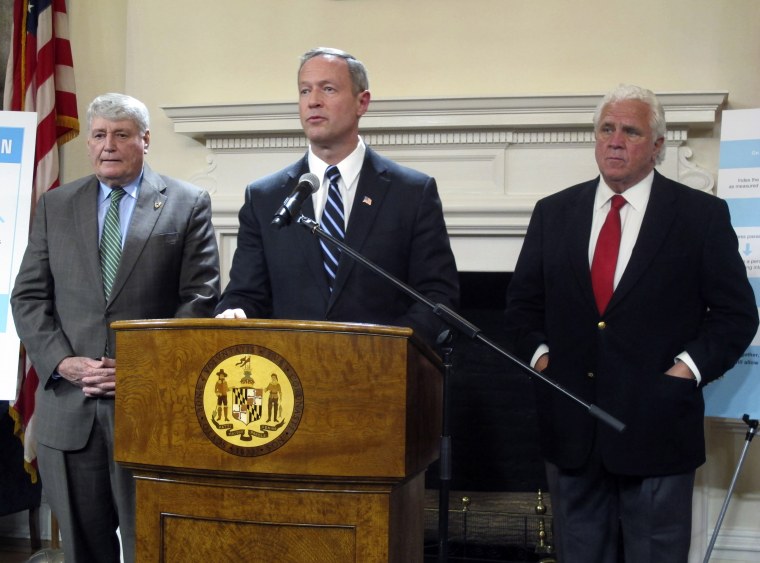Maryland could be the next state to boast passage of stricter gun laws this week.
The Associated Press is reporting that the Maryland House passed a gun control bill on Wednesday afternoon, after hours of debate on added amendments. The bill will now go back to the Senate, where it originated, where the delegates will either pass the bill in its new form or come together with House legislators to find common ground in the differences on the bill in order for it to pass.
What’s the rush? The House and Senate must reach a compromise on some of the amendments before the end of session on April 8th.
“There is no way to completely eliminate the risk of another tragedy like the one in Newtown,” said Gov. Martin O’Malley in a statement. “But that cannot be an excuse that keeps us from doing common sense things.” O’Malley’s Firearms Safety Act of 2013 includes revising ammunition magazine limits down from 20 to 10, banning assault weapons--more than 40 types, including the AR-15, the gun used by Adam Lanza in the shooting at Sandy Hook Elementary School--expand the list of mental-health patients precluded from purchasing firearms, and institute license to purchase requirements, such as fingerprints, safety training, and background checks for gun purchasers. The Senate approved the bill in February and many of the main points remain in the current form of the legislation.
Maryland would be the eighth state to institute these license-to-purchase requirements, joining the ranks of California, Connecticut, Hawaii, Massachusetts, Minnesota, New York, and New Jersey--all with lower rates of gun violence than Maryland. And a recent poll by Marylanders to Prevent Gun Violence shows that 81% support licensing of purchasers to buy a handgun. It stands to note that in the poll, 64% of Republicans approved this measure.
But despite Senate approval, the House was left debating certain tenets of the bill and adding on to the already strict regulations proposed by O’Malley. Many of O’Malley’s initial components remained intact, although the assault weapons ban was slightly diluted when House delegates chose to modify the physical characteristics of weapons not specifically listed that would subject them to a ban, as well as allow anyone who purchased banned weapons before October 1st to keep them. The ammunition limit is supported by 71% of Marylanders, but there is still concern that watered down amendments would lead to potential loopholes in the assault weapons ban coverage.
While the bill is ultimately expected to pass the House, The Washington Post reported late Tuesday night that lawmakers close to the negotiations are concerned the gun bill will be sent to a conference “and, therefore, a series of high-stakes votes on the final day of the session,” thus putting time constraints and extra pressure on lawmakers to pass Maryland’s first major gun-control legislation in 17 years.
A spokesman from the governor's office echoed those concerns on Wednesday, telling msnbc.com that the versions are different and discrepancies will need to ironed out in order for it to pass. The spokeswoman said "so far, we're happy" with the bill. "We are, at this point, observers," she said, but "it is our hope" that the legislation passes before the session deadline. Gun control remains the last major item on the governor’s legislative to-do list before the legislature’s session ends on Monday, April 8. If passed, the laws would go into effect on Oct. 1.
